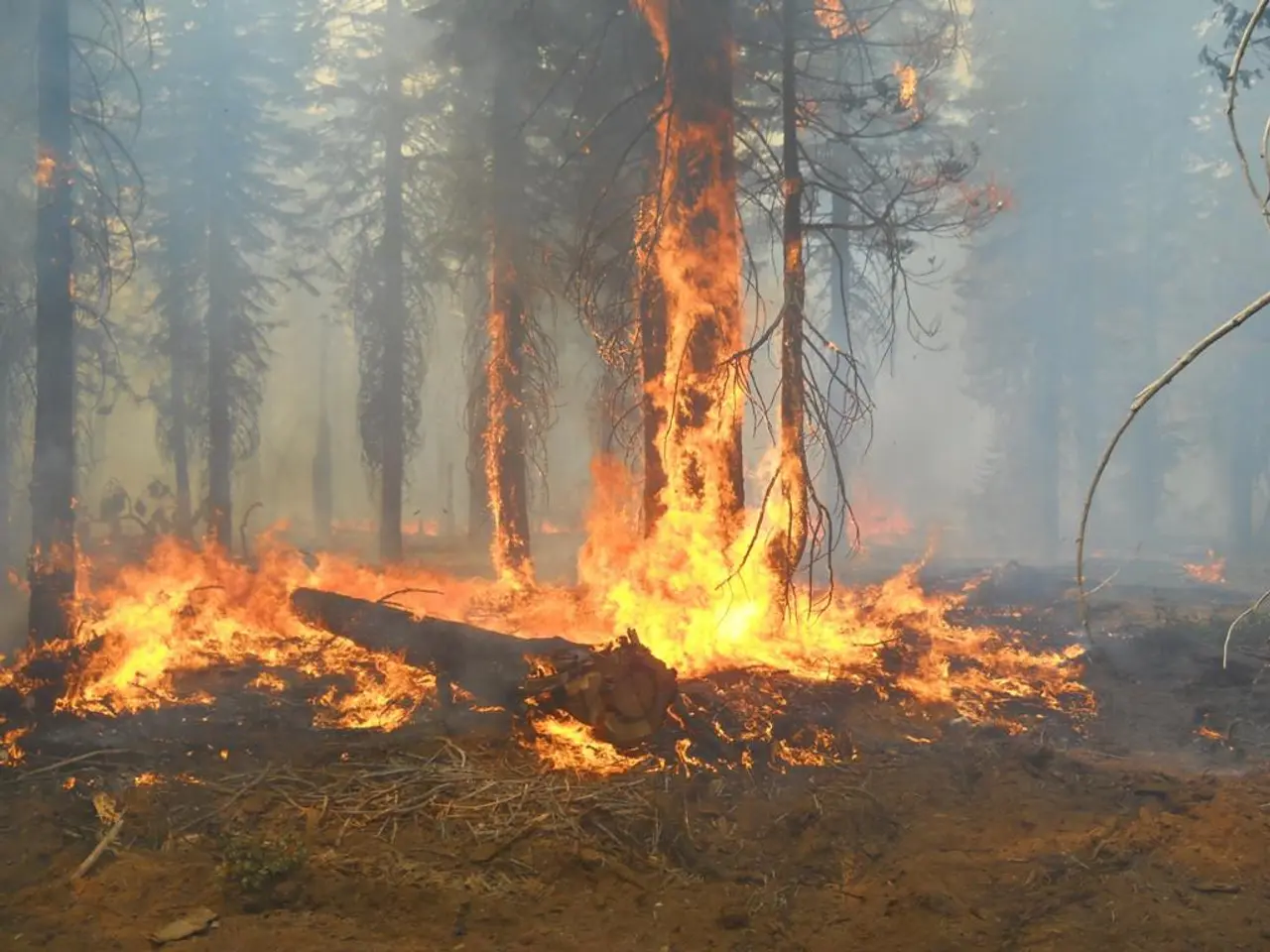Western Turkey Experiences Another Forest Fire, Resulting in Partial Closure of an Airport
As of mid-August 2025, Canakkale, Turkey, is still battling significant wildfires, particularly around the southern part of the Dardanelles Strait near the city center and the Gallipoli peninsula**. Efforts continue involving multiple firefighting aircraft and ground crews, with no immediate residential danger reported recently, but evacuations and disruptions remain in effect.
Evacuation efforts have involved:
- Over 250 residents from five villages near Gelibolu (Gallipoli) were relocated as a precaution.
- Earlier evacuations included a university campus (Çanakkale Onsekiz Mart University) and an elderly care home near Sarıcaeli village due to the threat of advancing flames.
- Villages including Sarıcaeli and surrounding areas have been evacuated and emergency shelters established for displaced people.
Traffic restrictions:
- The Dardanelles Strait (Çanakkale Strait), a crucial maritime route connecting the Aegean Sea to the Sea of Marmara, was temporarily closed multiple times due to heavy smoke and poor visibility caused by the wildfires. This has disrupted commercial shipping significantly, with around 100 ships delayed at one point.
- Canakkale airport was also temporarily shut in the early stages of the fires for safety reasons.
Firefighting operations:
- Aerial firefighting has been intense with at least 7 to 12 planes and up to 18 helicopters deployed, collecting water from the sea to combat the blazes.
- About 900 personnel, including firefighters and forestry officials, have been actively involved.
- Fire trucks and machinery have been used, though some firefighting vehicles have been lost to the flames during operations.
Context:
- The fires started around agricultural fields near Sarıcaeli village and spread rapidly due to strong winds and severe drought conditions experienced in the region over the past year.
- The area includes important historical sites, such as the Gallipoli battlefields and ancient Troy ruins, some access to which has been restricted.
In summary, the forest fires in Canakkale remain a serious threat with ongoing evacuations, significant disruption to sea traffic through the Dardanelles Strait, and the closure of the local airport at times. Firefighting efforts are vigorous, with many resources engaged to control the wildfires burning near inhabited and historically significant areas. Climate change is being blamed for the increasing extremes, with Western Turkey currently experiencing extreme heat, drought, and low humidity. Winds from the north and northeast of up to 80 km/h are expected until Tuesday.
- The ongoing wildfires in Canakkale, Turkey, have prompted intense weather-forecasting efforts, as winds from the north and northeast, reaching up to 80 km/h, are anticipated until Tuesday.
- The environmental-science community is discussing the potential impact of climate-change on these extreme weather conditions, as Western Turkey grapples with prolonged heat, drought, and low humidity.
- In light of these challenging weather conditions, the focus on weather-forecasting and climate-change research in the field of science becomes increasingly important.








